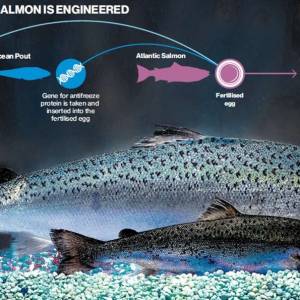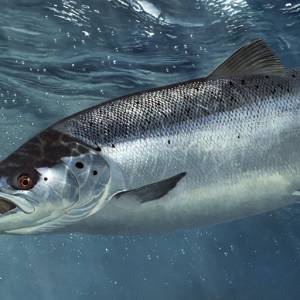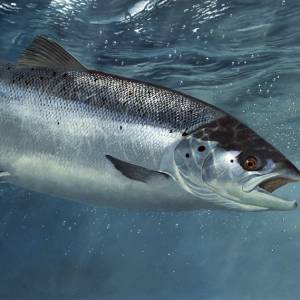How much of your food is organic? And how organic is your organic food?!
Our family has made a big commitment to going organic (and local) for health reasons: us, the farmers and farmworkers, and the water, land and air. We probably eat about 80% organic these days (once you subtract the non-organic ice cream, some snacks and sometimes rice). Maybe more in the summer when we get about half of our produce from our front yard.
But if you don’t grow the food yourself, how do you know organic is really organic? This article helps answer that question. “Is your organic food really organic: Imported foods found with unacceptable pesticides levels“
The other issue is that we’ve so polluted our environment – air, water and soil – that even organic food has pesticides and toxins in it. You can’t escape it because mercury, pesticides and other toxins float in the air and land on the soil and crops. From a 2002 NY Times article – “The first detailed scientific analysis of organic fruits and vegetables, published today, shows that they contain a third as many pesticide residues as conventionally grown foods.”
Read the article here.
The take away message is that organic food does indeed have less pesticides. And pesticide cocktails may be very dangerous to our health in the long run. Most people in the US who have done tissue tests find that they have dozens of pesticides, heavy metals and other toxins in the bodies. Fun, eh?!
Organic certification does indeed usually mean it is organic. Conventional, non-organic will generally have more pesticides on them. So, generally, eating organic is a good thing because it also means that the food has not been genetically modified. The health effects of GMOs are still unknown, but new evidence is surfacing that is very scary, particularly the effects on our intestines.
I would recommend the Environmental Working Group’s guides. This is carefully researched. And they have a Dirty Dozen list, which may help you prioritize the foods you definitely want to buy organic.
Genetically Modified Bonus News Items:
ROUNDUP READY CROPS KILLING HABITAT OF MONARCH BUTTERFLIES
GM Roundup Ready soy and corn monocultures in the Midwestern US are killing off the habitat of monarch butterflies, says a new study. The study shows a drop over the last 17 years of the area occupied by monarchs in central Mexico, where many of them spend the winter. The study attributes the decrease partly to the loss of milkweed, on which monarchs lay their eggs, from use of Roundup Ready crops. Other causes, it says, are the loss of milkweed to land development, illegal logging in Mexico, and severe weather. “It [glyphosate] kills everything,” said Lincoln P. Brower, an entomologist at Sweet Briar College who is also an author of the paper. “It’s like absolute Armageddon for biodiversity over a huge area.”
http://www.gmwatch.org/index.php?option=com_content&view=article&id=13316
The study: http://onlinelibrary.wiley.com/doi/10.1111/j.1752-4598.2011.00142.x/abstract
GM SALMON STUDY REVEALS DANGER OF ESCAPE
If GM salmon were to escape from captivity they could succeed in breeding and passing their genes into the wild, Canadian researchers have found. To measure the ability of GM males to complete with wild males during the reproductive season, the team monitored breeding behaviour in a naturalised laboratory setting. “While the transgenic males displayed reduced breeding performance relative to their non-transgenic rivals they still demonstrated the ability to successfully participate in natural spawning events and thus have the potential to contribute modified genes to wild populations,” said lead author Darek Moreau from the Memorial University of Newfoundland, Canada.
http://www.gmwatch.org/index.php?option=com_content&view=article&id=13321
Read more »
 Philadelphia residents are test subjects for first U.S. sale of genetically engineered salmon FOR IMMEDIATE RELEASE: May 17, 2021 CONTACT: blockcorporatesalmon@gmail.com, Estefania Narvaez – (210) 837-3205 Unconsenting Philadelphians will soon unknowingly be eating the first genetically engineered animal to be released in U.S. markets. AquaBounty Technologies (NASDAQ: AQB) is planning its first commercial scale harvest of genetically… Read more »
Philadelphia residents are test subjects for first U.S. sale of genetically engineered salmon FOR IMMEDIATE RELEASE: May 17, 2021 CONTACT: blockcorporatesalmon@gmail.com, Estefania Narvaez – (210) 837-3205 Unconsenting Philadelphians will soon unknowingly be eating the first genetically engineered animal to be released in U.S. markets. AquaBounty Technologies (NASDAQ: AQB) is planning its first commercial scale harvest of genetically… Read more »
 Philadelphia residents are test subjects for first U.S. sale of genetically engineered salmon FOR IMMEDIATE RELEASE: May 17, 2021 CONTACT: blockcorporatesalmon@gmail.com, Estefania Narvaez – (210) 837-3205 Unconsenting Philadelphians will soon unknowingly be eating the first genetically engineered animal to be released in U.S. markets. AquaBounty Technologies (NASDAQ: AQB) is planning its first commercial scale harvest of genetically… Read more »
Philadelphia residents are test subjects for first U.S. sale of genetically engineered salmon FOR IMMEDIATE RELEASE: May 17, 2021 CONTACT: blockcorporatesalmon@gmail.com, Estefania Narvaez – (210) 837-3205 Unconsenting Philadelphians will soon unknowingly be eating the first genetically engineered animal to be released in U.S. markets. AquaBounty Technologies (NASDAQ: AQB) is planning its first commercial scale harvest of genetically… Read more »
 Major food service company Aramark has made a public commitment to reject Genetically Engineered Salmon in compliance with demands from Tribal Nations. This comes before the first U.S. sales of AquaBounty Technologies salmon. The corporate consolidation of our seafood markets is pushing out community-based fishermen and BIPOC fishermen left and right and destroying our waters….
Major food service company Aramark has made a public commitment to reject Genetically Engineered Salmon in compliance with demands from Tribal Nations. This comes before the first U.S. sales of AquaBounty Technologies salmon. The corporate consolidation of our seafood markets is pushing out community-based fishermen and BIPOC fishermen left and right and destroying our waters….  Last May, we sounded the alarm about what would be the first genetically engineered animal in the U.S. market – a hybrid salmon engineered from three different species. Now, it looks like production of these enormous fish in a facility in Indiana will move forward. Today, in a statement from the Food and Drug Administration…
Last May, we sounded the alarm about what would be the first genetically engineered animal in the U.S. market – a hybrid salmon engineered from three different species. Now, it looks like production of these enormous fish in a facility in Indiana will move forward. Today, in a statement from the Food and Drug Administration…  Salmon figured prominently at the Presbyterians for Earth Care Conference held along Oregon’s Columbia River in September. These beautiful creatures are the traditional and cultural heart of the Columbia River tribes. As the keystone species, salmon not only created the biologically-diverse ecosystems of the region, but they also form the economic foundation for the indigenous…
Salmon figured prominently at the Presbyterians for Earth Care Conference held along Oregon’s Columbia River in September. These beautiful creatures are the traditional and cultural heart of the Columbia River tribes. As the keystone species, salmon not only created the biologically-diverse ecosystems of the region, but they also form the economic foundation for the indigenous…  93% of people in the U.S. want GMO labeling, but the industry has fought tooth and nail to avoid GMO labeling to happen locally or nationally. We will get there, but until then we must do our homework.
93% of people in the U.S. want GMO labeling, but the industry has fought tooth and nail to avoid GMO labeling to happen locally or nationally. We will get there, but until then we must do our homework.